Ever waited for a store to open but in the end, you lost your patience and just left? We don’t like losing time especially when there are so many alternatives for everything. This thing happens online too. Your audience hates it when they find a site that loads slowly.
The website’ loading speed affects your traffic, your conversion rate, and your customer satisfaction. Remember that Google is trying to behave as a human as much as possible, not just as algorithms. That’s why the lo0ading speed it’s also a ranking factor. To find out how much time it takes your site to load just check it with PageSpeed Insights.
If you don’t like the result that you are getting, then don’t worry. We have got you covered. Just get in touch with our team at Capsicum Mediaworks, an SEO company in Mumbai and we’d be happy to help you out.
We have also reached out to 33 Internet Marketing experts and asked them to share:
What Are The 3 Biggest Problems Causing WordPress
Sites To Load Slowly And How Do You Solve Them?
So without further introduction social on how to speed up a WordPress website. Let’s see what they have to say.

Zac Johnson
Nothing is worse than a slow loading website. Not only is it an inconvenience to your audience, it’s likely also killing your revenue and site numbers in the process. With WordPress being one of the most used content management solutions out there, I will give three methods for how to improve your site speed using this software.
The first is to remove any unused WordPress plugins and themes you currently have in your dashboard. These are just taking up space and slowing things down.
There is also likely a massive build up of spam comments in your database as well — also clear all of these out.
Lastly, if you aren’t using a CDN, I highly recommend you do. This will allow your server to run at a much faster pace, while also allowing your content to load faster for others around the world. Implement these three simple steps and watch your site speed increase overnight!”

Dave Schneider – Ninja Outreach
#1. Off the top of my head, one – Images that are too large definitely cause slow load times (We typically stick to around 600 to 700 pixels width).
#2. Formatting has always been and still is an issue – WordPress skews up formatting from other word processors and if these issues aren’t fixed once you transfer your text onto the platform, it can really slow your site down. It’s quite a pain in the neck, actually. I wonder why WordPress hasn’t taken action on these user inconveniences yet. There are already third party apps trying to fill this gap.
#3. The combination of the previous two I mentioned – We’ve had extensive experience writing lengthy articles on our blog, and whenever they get too long, the platform really slows down. We’ve published expert roundups featuring 50-plus experts before, and the content is massive. Our editors had a bit of trouble trying to edit things fast because WordPress would keep freezing under the total length of the article.

Dennis Seymour – LeapFroggr
Just use Google’s Page Speed Insights tool. That’s all you need for testing. Don’t over complicate it. That’s enough to tell you what’s wrong with your WordPress site.
I like to use my startup, SeriousMD (https://seriousmd.com) as an example. We have a blog there that’s using WordPress.
As a co-founder, I was so busy doing other more critical things for a SaaS and I was not able to pay attention to the site’s pages, especially the blog.
So I’ve started recently to pay a bit more attention to it.
#1. Big Ass Images – On WordPress, a plugin like ShortPixel will easily handle that for you or you can use a site like TinyPNG to manually optimize images. The better you optimize your images, the better and faster your pages will load.
#2. Optimize Scripts – I mentioned the Page Speed Insights Tool earlier, chances are, when you entered your URL there, you saw suggestions there like “Minify JavaScript” and others like that.
You normally can solve most of the issues with just a single plugin but if you run a server that’s not optimized for WordPress, I suggest that you rely on your Web development company to do the optimization, which will take a lot more time. Trust me, I understand the pain as I’m in the middle of it right now.
#3. Slow Servers – If your server is cheap, then there’s a good chance that it’s also slow, so there’s really no way around it. Just upgrade to a better server.
Bonus: It’s not directly related to having a slow-loading WordPress site but if you have a blog, you will most likely publish content. Then you need to use AMP for your content.
For WordPress, there are a ton of free plugins for this, including how to edit the template. It’s pretty straightforward so just install and tweak it. Be sure to test the AMP pages generated for your content.

Nirav Dave – Capsicum Mediaworks –Web Design Company India
Thumb rule is, if you want to keep your WordPress website speed optimal at all times then you need to select a good web hosting. The speed of your Web hosting plays a crucial role on how quickly a page loads when a query is made and thus, to ensure that your audience enjoys a superior browsing experience, make sure that you have a reliable web host like SiteGround.
#1. Unoptimized Images – The reason for a slow website speed is un-optimised images. These images take a lot of your server space leading to sluggish website speed and performance. Hence, optimising your site’s images with the help of tools like Short Pixel or TinyPNG is another way through which you can speed up your WordPress website.
#2. Unnecessary Themes & Plugins – Delete all unnecessary WordPress plugins and themes from your site and clear out spam comments and other junk media files from your media library. As the owner of a well-established web design company in Mumbai, I believe that this would ensure that your site is clutter-free and well-optimized.
#3. Caching – Lastly, try plugins like WP Super Cache (Free) or WP Rocket (Paid) to cache your website along with free CloudFlare and this should help you speed up your website considerably.

Umair Qureshi – CloudWays
There are several ways to speed up your WordPress website. I’d like to give three tips that will help:
#1. Get in Touch With Your Hosting Provider – If you are using cloud hosting, you might want to get in touch with them. They will tell you how to streamline your website and make sure that the hosting package you are using is compatible with the products or plugins you have installed.
Cloudways offers a managed WordPress hosting platform for websites, and you can easily improve speeds through the platform.
#2. Use a Powerful Caching Plugin – Another simple way to boost speeds is to use an effective caching plugin. This will store the final view for your site, so WordPress won’t have to generate one again and again.
The Breeze Caching plugin is an excellent choice that will significantly improve loading speeds.
#3. Compress Media Files – The bigger your images, the longer your website will take to load. A simple rule of thumb to follow is to compress all your images before uploading them on your website.

Minuca Elena
Three common reasons for which WordPress sites load slowly are:
#1. Too many large images – Most of my posts are expert roundups that contain content from lots of bloggers, even more than 100 in some cases. For each blogger I have to include an image. As you can imagine, a post that has over 50 images will load slowly. To improve things a bit, I always resize and compress all the images before uploding on the site.
#2. Too much content for one single post – I noticed that whenever I make a roundup that has over 10K, the post loads very slowly and it’s very difficult to edit. This happens due too much text plus too many images. When I see that the post keeps freezing, I usually edit the rest of the content in a separate draft and then copy it and paste it in the main post. As you can imagine this is a headache. I recommend you keep your posts at a decent length.
I know that many bloggers try to apply the Skyscraper technique and they make content, longer and longer, but sometimes there is too much for only one post. Even in the case of a roundup is better to split it into 2 parts and interlink them. Remember that very long posts will load slowly for you as a writer but also for your readers.
#3. Too many plugins – In the beginning, I didn’t know how to work in the text mode so I used a lot of plugins even for simple stuff. Also, another mistake is too keep on your site the plugins that you don’t use anymore. Learn some basic coding and delete all the useless plugins.

James Reynolds – SEOsherpa
We optimize the performance of a ton WordPress websites over at SEOsherpa and these are the 3 page-speed issues that come up most:
#1. Page caching – Usually fixed using caching plugins like W3 Total Cache
#2. Slider Plugins (example: revolution slider) – Many WordPress sites are designed with sliders that cause a site to load slowly. This is usually fixed by creating a custom plugin slider that utilizes fewer files/codes.
#3. Too many plugins used – minimize the number of plugins by removing those that are not entirely necessary to the functionality of your site.

Mark Verkhovski – American Webmasters Association
Three things that can make your site load slowly are:
#1. Cheap hosting – If you are a newbie, you are probably trying to save some money by choosing the cheapest hosting that you found. This is a mistake that will prove to be very expensive later on. Studies have shown that 40% of people will leave a site that takes more than 3 seconds to load.
#2. Not using a cache plugin – Install a caching plugin like W3 Total Cache or WP Rocket
on your website will allow you to enable browser caching and site compression and that will make the site load faster for repeated visitors.
#3. Themes that have too many features or are poorly coded – Some premium themes have a lot of fancy features and shortcodes that you will never need to use. Is better to choose a light theme. After you changed your theme, always delete the old one from your site.

Andy Crestodina – Orbit Media
#1. Images aren’t resized – This isn’t a WordPress problem. It’s the fault of the content manager. Images should be properly cropped and resized. Don’t just upload that photos from your phone. Lovingly compress your images and carefully choose between PNG, GIF and JPG formats.
#2. Too many plugins – I’m not sure if people realize how many plugins they have installed. Think twice before clicking to add a new plugin. It’s called “code bloat” because there is too much code running. All that Javascript slows things down.
#3. No CDN – A content delivery network can make a big difference. Take a look at the options and pricing. The before and after difference in load time is measurable. You’ll also feel it yourself when you visit the site!

Andrew Lowen – Next Level Web
Amazon found that even one second of load-speed could cost them $1.6 billion in sales. One in four people will leave a website that takes longer than 4 seconds to load! Website loading speed is therefore highly critical to “optimal” success of your website, even as a small business owner. There are many ways to improve loading speed. Here are three quick tips:
#1. Use a light theme – Picking a “popular” WordPress template off of a site like ThemeForest is often an immediate cause of slow loading. These themes are often bloated with unnecessary shortcodes and internal features, 75% of which you will never use. They might have an amazing demo theme, but avoid these at all costs. If you’ve already purchased one, it’s not the end of the world to change over to a new theme, though that may cost you if your website has a ton of different template pages.
#2. Minimize use of Javascript – Slow loading due to lots of Javascript is especially common with “fancy” websites that do a lot of moving. While movement is great on click, and fancy applications look nifty, they are often unnecessary to communicate the message you’re looking to send and just add a ton of loading time, which your visitors will not appreciate! The bottom line is that everyone that visits your website cares that it provides them with the information they are seeking. They care less about your presentation of that information, so remember to design with this prioritization in mind.
#3. Use a decent hosting plan – Too many websites are limited by shared hosting plans. Yes, $5/mo or $100/year might sound great, but the reality is that most consumers have almost no idea what they’re buying when they purchase cheap hosting. Almost nothing is safe, and you’re going to have artificial limits placed on your website loading speeds (sometimes right away, and other times after a small threshold is reached). Therefore, be sure to purchase space on a dedicated server or VPS hosting (virtual private server).

Lilach Bullock
One of the biggest problems causing WordPress websites to load slowly is having too many plugins installed. There are so many great plugins that it’s very tempting to download as many as possible; but, this will definitely slow you down. So, go through your list of plugins and delete any that you don’t use, as well as any plugins that you don’t really need.
Another common issue is when you’re using too much imagery that takes up too much space. We all want our website to look as beautiful as possible, but if you’re constantly using and adding images that are of very high quality, then it’s quite likely it will slow down your website. The solution for this is very simple; instead of using super high-quality images that take up a lot of space, try using some smaller-sized images. Additionally, you can try different WordPress plugins that optimize images.
And finally, there’s the hosting service you’re using – it could be that your hosting simply isn’t good enough, especially if you’ve gone for the cheapest plans. The thing is, you get what you pay for; so, if you want a faster moving website, it would be worth investing in a better hosting plan, or even changing your hosting altogether.

Aaron Lee – Agorapulse
When I started my blog, one of the main issues was slow loading time. It was frustrating to me, my readers and it turns out to Google too. I quickly learned my mistake and what was causing.
#1. Large images or uncompressed images – I was uploading images that were too large, some over 4mb per picture. Now before I upload images, I’ll resize those images to a wide of 640px. That will bring the size of the images down to less than 100kbs. Another tip is to save images as JPEGs, It’s a compressed format which slightly reduces image quality, but it’s significantly smaller.
#2. Don’t have too many plugins – Not all plugins are created equally. Poorly built or outdated plugins can slow down site performance. Installing too many plugins can also cause website to slow down too. Look at your current plugins to figure out which plugins you need.
- Remove plugins that perform the same functions
- Remove plugins that you’re no longer using,
- Remove plugins that are no longer updated or have been abandoned for a few years.
#3. Switch To A Faster Host – Shared hosting may be suitable for beginners, but when your site picks up, a more rapid hosting is recommended. I recommend paying $10 extra. When I switched and paid for a dedicated hosting, my site load time decreases drastically.

Steve Wiideman – Wiideman
The 3 biggest problems we see causing WordPress load issues include:
#1. Theme Bloat – Many out-of-the-box themes today try too hard to include all the bells and whistles, most of which have little to no impact on conversion rate, SEO, and site performance. Examples would be carousels, sliders, and fancy design elements that users really don’t care about, and worse, may actually distract a buyer or potential lead.
#2. Excessive Plugins & Scripts. – Marketers really need to ask themselves if a plugin is helping to improve site performance and user experience, or if they are using the plugin because they think it’s “cool”. Additionally, we’ve seen plugins and scripts added from 3rd party solutions that really bog down load times, even when added to Google Tag Manager or other single-pixel solution. One example last year was a tracking script from Unbounce created a load issue for us when A/B testing landing pages. We ended up removing the script and doing our measurements manually using Google Analytics.
#3. Hosting Plan – Many hosting providers still haven’t figured out how to support WordPress’s stress on SQL. Other hosting providers, such as SiteGround have figured out how to create made-for-WordPress hosting solutions that create less strain or are pre-configured to handle it. Marketers should discuss WordPress with their hosting provider to ensure that they are on the best configuration available to reduce the potential of load issues.

David Leonhardt – THGM writers
In fact, I worked on speeding up THGM writers several months ago. I saw an increase in traffic and leads as a result. In fact, speeding up the site was part of a three-pronged process:
#1. Speed up the pages
#2. Make the site fully responsive
#3. Add useful content to the money pages
We did several things to speed up the page loads. First, we compressed images. In the template, there are a lot of trust logos. We combined them into a single image that was much smaller than all the small ones individually. We also removed a rotating image across the top. That script was cute, but it was not making money.
It was just coincidence, but our web host was reviewing his servers at the time. A brand new server really made a difference.
I should note that the site was already being delivered by CloudFlare, a content delivery network (CDN), which I would strongly suggest, especially if your audience is around the world.

David Krauter – Websites That Sell
#1. Hosting – This is the fundamental step to fast loading sites. Even if you’re on a budget you can properly optimize your hosting so it’s optimized for WordPress to run fast. Having said this… if you’re on shared hosting and hoping to get the same speeds as a dedicated server, you’re dreaming. If you’re on a dedicated server you can optimize the hosting for EXACTLY the settings your site needs which is going to give the BIGGEST improvement to your WordPress speeds.
#2. 3rd Party Scripts – Many times these are the little bottlenecks that are hard to spot… a social button, a javascript or video that drags your site’s load speeds to the 10-15 second mark. Make sure you check what scripts are loading when and how they are affecting your load time. If you don’t 100% need them, get rid of them, otherwise get in touch with your developer to optimize the scripts to run faster.
#3. Images – This is a simple one, but too many times do we see clients sites that have 1500px wide images displaying as 300px wide images on the actual page. That’s 5 times the loading time! If the image is properly optimized to the correct 300px width it will dramatically reduce loading times.

Sean Si – SEO-Hacker
#1. Watch out for heavy images – One of the most common issues that causes your site to load slowly is, of course, unoptimized images. To put it simply, the larger the size of your images, the longer it is gonna take for it to load. If one page contains a significant amount of heavy image files, you can really expect a slower loading time.
#2. Use only the necessary amount of images and always consider the file format – Go for JPG images rather than TIFF, BMP or even PNG formats. How’s your Javascript? Because Javascript is not as important to a site’s architecture as opposed to HTML, you’re better off loading it last. Take advantage of asynchronous loading.
#3. Quick note – Minify your Javascript if you can. Server performance It all comes down to basics: a poor server will inevitably take a longer time to respond. A server’s location and performance play an important role to this. Take advantage of CDNs to reduce latency. For this, we use MaxCDN.
Overall, it’s crucial for you to always pay attention to how you build your website, even from the beginning. As they say, prevention is better than cure.

Niraj Ranjan Rout – Hiverhq
#1. Image dimensions – When you upload images that don’t fit space available, they will get scaled down using CSS, and this can slow down your website. So, it is always better to edit your images and make sure it fits the space available. You can also use plugins like Hammy, Lazy Load, Imsanity etc, they will make this a lot easier.
#2. Poorly coded WP themes – You need to be very careful while choosing WP themes. Bug-ridden themes can easily slow down your website’s performance and cause fatal errors. So, it is crucial that, before you purchase or install a theme, do extensive research about it – read user reviews, check its source, find out when was it last updated, and whether the customer support is good enough.
#3. Too many external HTTP requests – Most of the popular browsers allow a maximum 6 parallel connections when you exceed that, it can slow down your website’s load time. Few ways to rectify this issue are:
- Moving JavaScript files out of the head section and inlining smaller JavaScript files.
- You could reduce the number of files to be fetched.
- Combine & inline your CSS scripts
- Lazy-Loading Disqus Comments
- Limit the number social sharing buttons.

Paul Jansen – Luvly
Managing over 50 WordPress sites I have experienced many different issues for WordPress sites to load slowly. 3 Problems that come to mind that I’ve seen over and over:
#1. The ‘wrong’ server for WordPress – Many hosting companies don’t have the right settings for WordPress sites. Move your website to a good WordPress host to speed things up
#2. Image file sizes – This is a quick win: Reduce image sizes with a tool like Tiny PNG.
#3. Using a theme with ‘bloated code’ – Many of the bestselling WordPress themes in the market actually have a lot of bloat. This causes high load times. Here are a few leaner WordPress themes.

Floyd Buenavente – Marketing Manila
#1. Hosting Provider – Most website owners fail to acknowledge this because a lof of them feel that a cheaper hosting provider is the best way to have a website whereas it should be the opposite. Remember that this will also handle your SSL certificate which by the way slows down your website load time and failing to have an SSL certificate can be a pain.
#2. Failing to use CDN – Aside from the security it provides a faster load time for your website specially for mobile sites is important as most users can be found through mobile. (Hint: I’d rather optimize for speed in mobile than desktop nowadays.)
#3. Website Platform – I always use WordPress as my CMS because not only does it have a good list of plugins and flexibility but also because Google loves WordPress sites. A faster theme also, by the way, compliments everything as well. So make sure that you use WordPress and use a fast theme at that.
You can find more info about how to speed up your website in my upcoming post about it in my SEO Blog.

Mi Muba – Be A Money Blogger
To load your site faster there are several must-do things that you should keep doing regularly but the following three are most important and never compromise on them.
#1. First one is appropriately installing a cache plugin. In the beginning, I simply installed W3 Total Cache plugin just with a few clicks and didn’t go through any tutorial on how to install it to take it’s all benefits. As a result, it was installed on my site but was not giving the results that it could have given if I had clicked all the options that help my site speed faster. So read a tutorial before installing it and avail its every option that you can.
#2. The second main challenge is the selection of theme. Everyone knows a free theme could be a big hurdle in loading your site faster. But there are several cheap themes that equally become a big hurdle if you pick them just to save a few bucks. Also, there are many theme sellers that have both cheap and costly themes so never pick its cheap theme believing in its brand. The price differential between a cheap and high-quality theme is just a few dollars up to $50 but the cost you have to pay in terms of slow speed could be a big hit on your blog income.
#3. Third and last challenge is the selection of best hosting. Now those companies that were other name of best quality just awhile before now have at the saturation of their service level. So pick very wisely and don’t rely on one that is being used by everyone. Just pick the one that has the highest level of satisfactory reviews online not in number but ratio wise that means if it has two adverse reviews and five satisfactory reviews it means it has a ratio of 1 adverse and 2.5 satisfactory review that is great to prove it the best hosting.

Erik Emanuelli – No Passive Income
#1. The first issue (and the one causing most troubles) is your hosting service. If you are on a shared server and you (or the other user accounts on the same) are using too many resources, then your site will take ages to load. Find the best solution for you (I’m on a dedicated server and the loading speed of my sites is amazing).
#2. The second issue is the media on your site. Remember to resize them, before proceeding to upload. Use tools to optimize them, there are tons available with WordPress.
#3. The third suggestion is to use a cache plugin. When a user opens a frequently accessed page, the browser will have most (if not all) of its files cached. The most popular choices are W3 Total Cache and WP Super Cache.

Ashley Faulkes – Mad Lemmings
I actually spend a lot of my time creating WordPress websites for clients or fixing issues like slow sites.
These are the biggest 3 problems I have seen:
#1. The biggest issue with most websites is images. People just upload them from their camera or wherever they grabbed them from. So, you get 1 Meg images or even 500k instead of maximum 120-150kb.
Fix:
- Resize them to the size you need (usually max. 1200px for a website, 800px for a blog post).
- Compress them, keeping the quality good enough.
You can use any tool to do this, but I find Pixlr Express the simplest, easiest to learn and does the best job of almost all tools I have tried.
#2. Caching is the next big one. WordPress “runs” the code each time you open a page. But it does not have to run all the code because most times nothing changes. By adding a caching plugin you are reducing this by “saving” a copy of the pages instead of running this code each time.
Fix: Try WP Supercache, W3 Total Cache, or if you want the simplest and most effective one (which you have to pay for) WP Rocket is a great option.
#3. The last one is excessive Javascript and CSS files. This is due to your theme and plugins.
Browsers can only load so many files at one time, so if you have too many files on your site that need to load – you get a slow website.
Fix: You need to activate javascript and css concatenation (and potentially minification – although that will only bring marginal improvement).
This can be done inside W3 Total Cache, or alternatively Autoptimize. Just be careful to test your website afterward, as this has a tendency to break some themes or plugins.
BUT, it’s well worth the effort.
If you want to learn even more about this stuff, I have a big blog post (and even a course!) on how to speed up your WordPress website.

Chris Makara
The biggest culprit of slow WordPress sites almost always comes down to having too many plugins in use. I’ve been guilty of this numerous times, but I find that it is important to really decide if a certain plugin is critical to have on a website. If you install every plugin that you think you need, you’ll be on your way to slow down the load times of your pages. So I always recommend caution when using plugins because of this.
Image sizes are typically then next problem I encounter on slow WordPress sites. Most sites I have worked with were not using any sort of image compression which meant the site was trying to load the full-size image and then resize it in the browser to the right size. By implementing compression for your images, the file size is reduced which ultimately helps to reduce your page load times. You can kill many loading issues by using a caching plugin where some will also handle compressing images and utilizing CDN’s.
The final problem is usually related to using too many external scripts. This is problematic because certain elements of the site are relying on external sites to serve up the content/fonts/functionality on the WordPress site. And if these external sites are slow or down, it will bring your load time to a crawl. So it’s best to limit external script usage when possible.

Marcus Miller – Bowler Hat
#1. Size – This is the obvious one. That lovely image led theme. You need to optimize those images. You need to minimize all the assets. You need to have a page that loads quickly on a mobile over a shaky data connection. At Bowler Hat, we have seen websites that were 30 MB. Ideally, we want pages no bigger than 2 MB.
To fix this optimize your images and minify your content. Use Google’s Test My Site to tool to generate site-specific recommendations to improve loading time.
#2. Plugins – A site bloated with multiple plugins will also slow down. More execution time. More conflicts. More files. More to download. Keep your site technically lean and mean and download and rendering times will improve.
To fix this review your plugins and ensure they are all needed. Audit them and remove anything not essential.
#3. Hosting – A perfectly optimized website below 2 MB with zero plugins will in theory load pretty quickly. That is if the hosting is up to the job. If the hosting is not up to speed then everything else you do will still fail to improve things.
To fix this look at premium hosting services like WP Engine and monitor performance with tools like Pingdom and the data from Google Search Console.

Matthew Loomis – Build Your Own Blog
Here are a few recent issues I had to address to help my website increase its download speed:
#1. My WP site was loading several external javascript files. What I did to solve that was to copy and paste javascript files together to make a single main JS file. Now, web browsers have less JS files to load to display my homepage.
#2. Secondly, I had something going on known as “parallelize downloads across hostnames” happening. So I had to create 3 additional subdomains and CNAME records. I pointed them to my wp-content directory. Then I configured WordPress to parallelize downloads across subdomains. I simply added code to the WP theme’s function.php file. Then replaced the subdomains values with my subdomains.
#3. The third thing I did was combine the external CSS. For this, you can link your CSS files on the web server. Combine them, then the CSS warning won’t show anymore, as the files will load in a single request.

Alex Florescu – Short Pixel
ShortPixel plugin helped thousands of WordPress users to speed-up their websites, and after doing so the answer to your question is clear: unoptimized images, poor hosting services, and too many server requests are the worst culprits for slow loading web pages.
Because we are specialized in image optimization, I will talk more about how a WordPress user can reduce the sizes of his images too. The old way was to compress images locally and upload them to the Media Library, but this method has some serious downsides. It is a productivity nightmare and the thumbnails generated by WordPress remain uncompressed. ShortPixel and other similar services solve these issues by processing the images and their thumbnails in the cloud. This approach is the most popular one because it minimizes human errors, takes less time, and also reduces the sizes of the WordPress thumbnails. Moreover, the image optimization algorithms we use are proven after they reduce over 172 million images. So, compress your images using an automated service!
Another big mistake many WordPress do is to use images which are not properly sized for their placeholder. Browsers load these pictures and scale them down. The bandwidth is spent for unused information, and this is not smart.
Finally, I recommend WordPress users to know when to use an image format or another. Simply put, use PNG for logos and graphics, and JPEG for the regular images.

James Nuttall – It Works Agency
The more plugins you have, the more time WordPress needs to load them all, which can make for a really tedious user experience, encouraging your users to go elsewhere for their content/products. Related post plugins are particularly bad for this – they need to crawl your whole website to find a post that is most relevant to the one you have most recently published.
Another problem may be that you have put far too much content on your homepage.
It is natural and right that you should want to make your homepage as visually appealing as possible, as well as convey as much information about your company as space allows.
The issue with that though, is that the more written content, images, and widgets your homepage features, the longer it will take to load. As most visitors see the homepage first, you should really embrace the ‘less is more’ approach.

Pradeep Kumar – HellBound Bloggers
#1. Theme – When we want to kickstart our WordPress website, we often focus on how attractive it looks, but we fail to understand that comes secondary. We need to concentrate on the content part alone and see how properly it is optimized. We can avoid additional scripts, widgets, and images on the theme. Make it minimal yet meaningful.
#2. Images – Images are good, but what’s the difference between black color CSS and black color image? We can keep that in mind while optimizing our website. We also need to use proper image compression plugins and optimize all the images on our site.
#3. Web Hosting – Ask any web development company in Mumbai and they’ll tell you that if you are using a crappy web hosting service, then nothing can save you. Avoid free web hosting plans and if your website is getting a good amount of traffic, then avoid shared hosting as well. Move to Cloud or VPS.

Richard Lowe – The Writing King
#1. One of the first things I look at when optimizing a site’s speed is the images. Many make the mistake of including high-quality, high-resolution images on their pages. These images need to be shrunk down in size, either by manually editing them or using a plugin such as EWWW Image Optimizer or SEO Friendly Images.
#2. Problems with a theme can also slow down a site, most frequently because of a poorly optimized free version. Premium WordPress themes are generally better optimized and have support options that can be used to correct issues.
#3. Poorly written plugins are another huge performance issue. Contrary to popular belief, it’s not the number of plugins – it’s using plugins that don’t follow WordPress standards or are poorly coded. Of course, using a lot of plugins increases the likelihood of getting one or two that are poorly written. I tend towards using premium plugins, ensure they do exactly what I need, are fully compatible with the current version of WordPress, have good reviews, and are updated frequently. When researching why a site is low, I unload all the plugins, then turn them back on a few at a time while testing performance. This usually isolates the poorly performing ode.
#4. And a fourth, obvious reason – a slow web host. This is probably the most common problem. The solution is easy – use a web host service that gives a good performance.

Srish Agrawal – Logo Design Team
Most site owners think the content and design of their site are the most important things to track and measure. However, the actual speed and loading time of your site are the most important. This is something Google puts a lot of weight on, and if you aren’t actively monitoring and improving this, your site will ultimately fall in the rankings while also alienating your audience in the process. Three off the biggest problems that cause websites and blogs to load slowly are:
#1. The use of third party widgets (trackers and Facebook fan page badges)
#2. Using full-size images and not keeping them compressed for quality and size
#3. The use of a shared hosting server (too many sites on a single server can definitely affect the performance of your site as well).
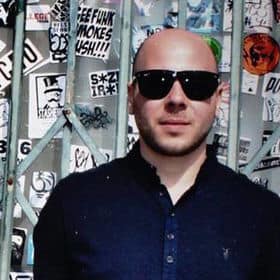
John Surdakowski – Avex Designs
We work on WordPress websites every day and help our clients speed up their websites. Here are the 3 biggest problems causing slow WordPress websites.
#1. Too many plugins – Plugins can slow down WordPress websites from loading quickly. Many plugins inject JavaScript and CSS into your well-written code, causing the page to load slower. These plugins are often added for marketing purposes such as heat maps and email capture popups.
#2. Hosting – WordPress can put some heavy lifting on your hosting platform. A shared host can cause your website to load slower regardless of what you do to optimize the website.
#3. Not Using a CDN, caching or optimizing images – A CDN (or content delivery network) will drastically speed up your WordPress website.Basically, it will distribute data across multiple servers around the world as well as cache the content. This will make all content, animated/explainer videos, images, and other media load much snappier. Optimizing your images prior to uploading them to WordPress will also save some much-needed load time. When saving images, make sure to use a setting in photoshop that keeps the file size low and still retains quality. Another tool would be the “ImageOptim” app or other online services, which will further reduce file size without decreasing quality.

Jordan Strauss – Majux Marketing
Our agency works primarily on WordPress sites. These are the top three reasons that usually cause sites to load slowly:
The first big thing slowing WordPress down is overusing plugins. Many inefficient plugins (such as image sliders) are JavaScript heavy and slow down page loading time, and others put excessive load on the hosting server.
The second issue is oversized and unoptimized images – this can be resolved using any number of image optimization plugins.
The third issue slowing down sites is when the PHP version used by the hosting company is outdated. Users should contact their hosting companies to ensure they are on the latest PHP version.”

Iain McCallum – Delphic Digital
#1. Lack of caching – Each time you open a page, WordPress does a lot of work to build it — caching saves the result of that work on the server. Less work, more speed! We tend to use the W3 Total cache plugin.
#2. You’re using too many third party scripts – A good starting point is to try cutting down on the number of third party plugins/widgets you’re using because many of them will ask your browser to load their own JavaScript and or CSS files. The more requests, the slower your page.
#3. Your site has large images and heavy media – Think carefully about how much impact you’re getting from large images vs. how much you’re losing from longer load times. If you do use large images, look into compressing them and make them no larger than is absolutely necessary.
For a deeper dive into performance, looking into progressive web apps would be a good starting point. Check out this introduction https://web.dev/progressive-web-apps/ from Google. Essentially, it explains how different bits of tech make websites act more like apps.

Wes Marsh – On Target Web Solutions
I actually find there to be 4 common problems that cause WordPress sites to load slowly.
#1. Too many plugins. For the novice, the sheer abundance of available plugins for the WordPress platform allows webmasters to overload their site with too many plugins. The expert will only use the minimum number of plugins required to ensure the site’s full intended functionality.
#2. Not using a caching plugin Simply stated, serving a cached version of your site will cause your site to load faster. There are a number of plugins available with both free and paid options, depending on your needs. WP Rocket, WP Super Cache, W3 Total Cache are just a few.
#3. Not optimizing images Images should be scaled down to fit their intended spaces on a website no larger than the maximum display size used by your users. So a full width background header image might be set for a 1320px or 1080px max-width at the absolute largest. Inset images, icons, and product photos on a website should be substantially smaller. Far too often I have seen images dropped in from a digital camera that are well over 3000px wide. This causes the user’s web browser to determine how to resize the image, and it happens while the site is loading, thus slowing it down. Also, after resizing the images, ensure they are “Saved for Web and Devices” in a tool such as Photoshop to further reduce the file size. Finally, a plugin such as Kraken.io can further optimize the images used on a site to minimize its size without sacrificing image quality.
#4. Not using gzip compression The key to faster loading sites starts with compressing the code. Just as zip files provided a way to compress images, pdfs, and other file types to allow for easier transmissions; gzip compression has a similar effect for web browsers and servers. For modern WordPress sites, there is simply no good reason to not use gzip compression.
For a final note, anyone who is interested in improving the speed of their site should be using testing tools such as Google’s Page Speed Insights or GTMetrix. These free tools offer valuable insights as to how sites load and specific factors a user can employ to speed them up.

Ed Baxter – Evoluted
The three biggest issues I find are:
#1. Not using database caching
#2. Using a badly coded custom theme that hasn’t been optimized in any way. Eg: massive javascript files and badly written code.
#3. Users uploading huge media files that haven’t been resized/cropped properly. Another one I’ve run into to on occasion is clients using terrible hosting.
Thank You Experts
Thank you so much to all the experts that contributed to this WordPress speed optimization expert roundup post! Please share this post with all your friends and followers on social media. We want to help more site owners to improve their websites speed. You may also want to have a look at some of our popular guides like killer WordPress Checklist or how to Optimize WordPress Website Guide.
If you have any questions with regards to website speed optimization, do let us know in the comments below and someone from our team will soon reply.






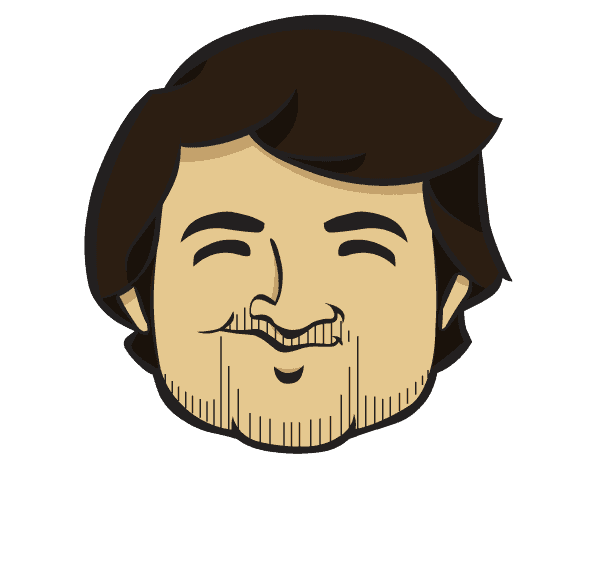
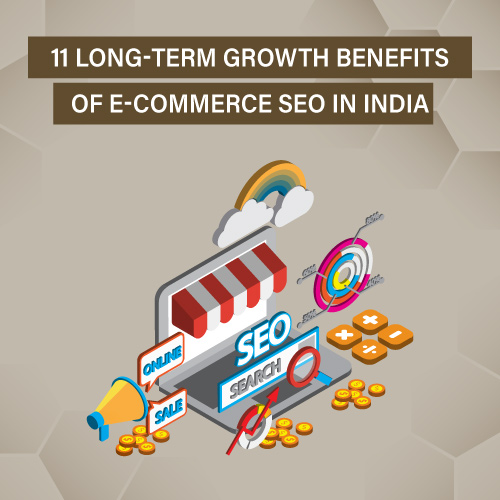



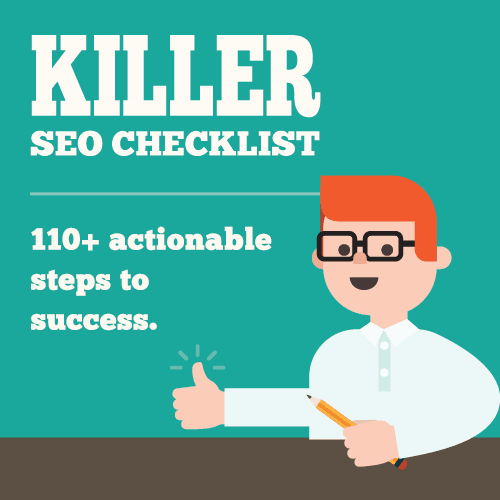

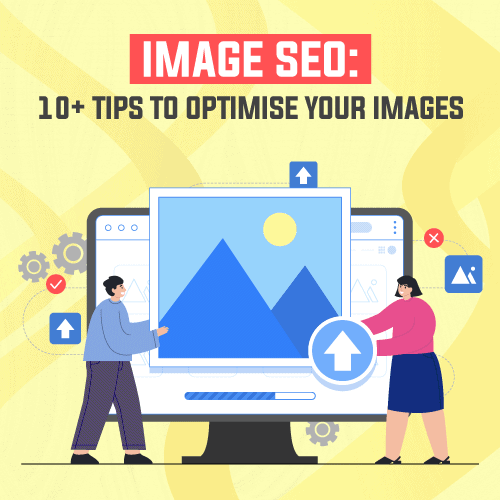
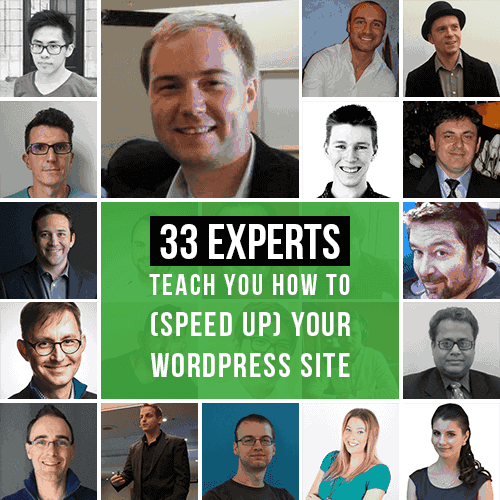
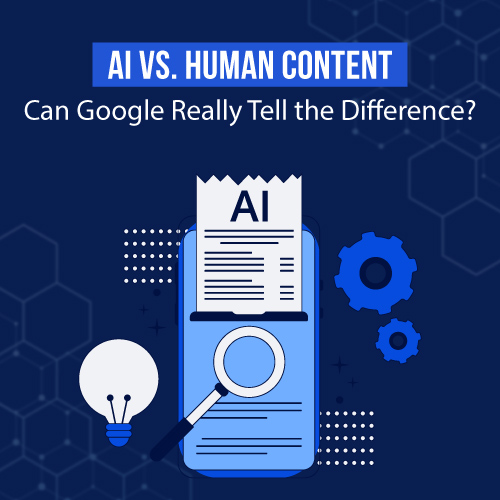
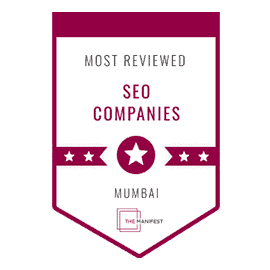




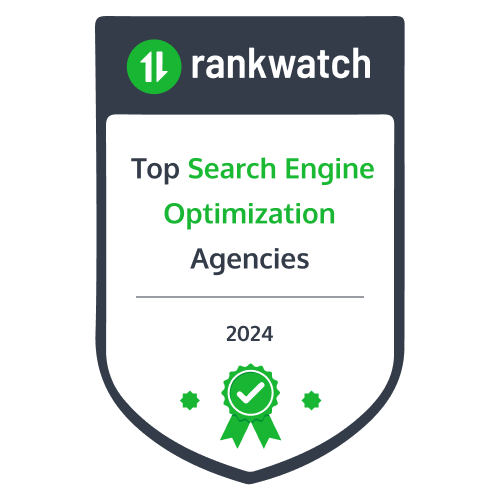


Comments
I agree with zac Johnson. Too much of spam comments and themes that are not in use can slow up your site speed. I have experienced that.
Hi Nirav,
Happy to be here after a bit gap.
Great tips shared by different experts.
Yes remove all unwanted plugins. Select a good and high-speed hosting platform like A2Hosting.
Use, sized images by using free plugins like WP Smush. It Reduces image file sizes, improves performance and boosts your SEO.
Thanks Nirav for sharing this.
Have a good day.
Faced some problem with your comment option, Captcha trouble. Thanks for fixing it.
Best Regards
~ Phil
Hey Philip,
Thank you so much for comment and suggestions. Selecting a Good Host and Optimizing Images according to me are the key areas to to improve the speed of the site.
Also, thanks for point out the issue with comment 😉